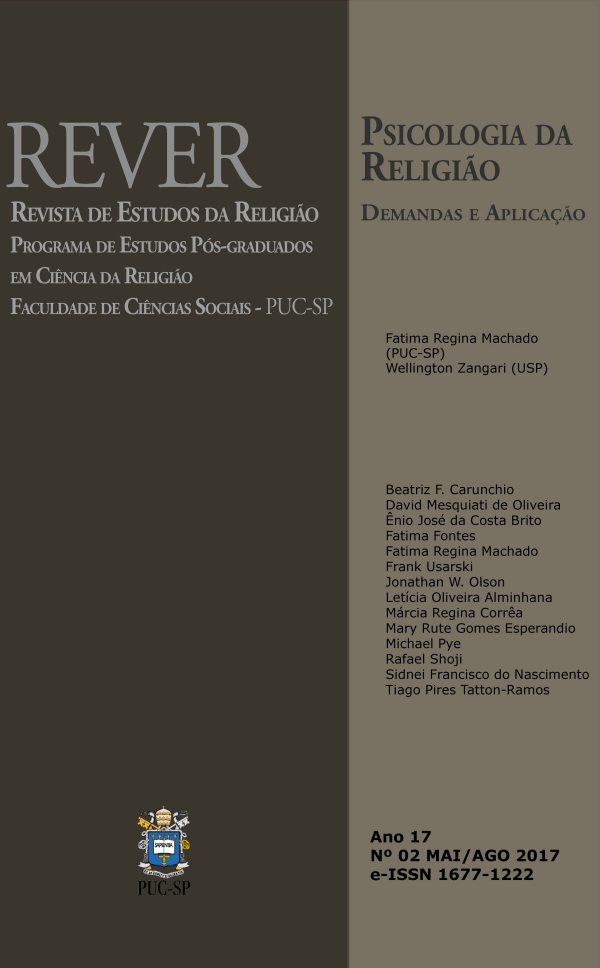Sociological perspective on the expansion of Buddhism and Japanese Religions in Brazil
DOI:
https://doi.org/10.23925/1677-1222.2017vol17i2a6Keywords:
Buddhism, Shintoism, Japanese New Religions, Eastern Religions in BrazilAbstract
From a statistical point of view, Buddhism, Shintoism and Japanese New Religious Movements represent only a small portion of the religious landscape in Brazil. Nevertheless, the subfield is relevant in historical terms and - at least for certain segments Brazilian society - as a religious alternative in a traditionally majority Catholic country. The article starts with an overview of the historical development of Shintoism, Buddhism and Japanese New Religious in Brazil. Based on results of the last national census the second part summarizes the current demographic characteristics of the subfield. The last part reflects on possible organizational and socio-religious constellations that might be responsible for the minority status of the religious traditions in question.
Downloads
Published
How to Cite
Issue
Section
License
Authors who publish in this journal agree with the following terms:- Authors retain copyright, but grant the journal the right of first publication, with the work simultaneously licensed under the Creative Commons BY-NC License.
- Authors are authorized to assume additional contracts separately, for non-exclusive distribution of the work published in this journal (e.g., publishing in an institutional repository or as a book chapter), as long as with acknowledgment of authorship and first publication in this journal.


